2024 Chair Award, Outstanding Scholar Award, & the Academic Award Ceremony of CoE, NTU
2024/12/2
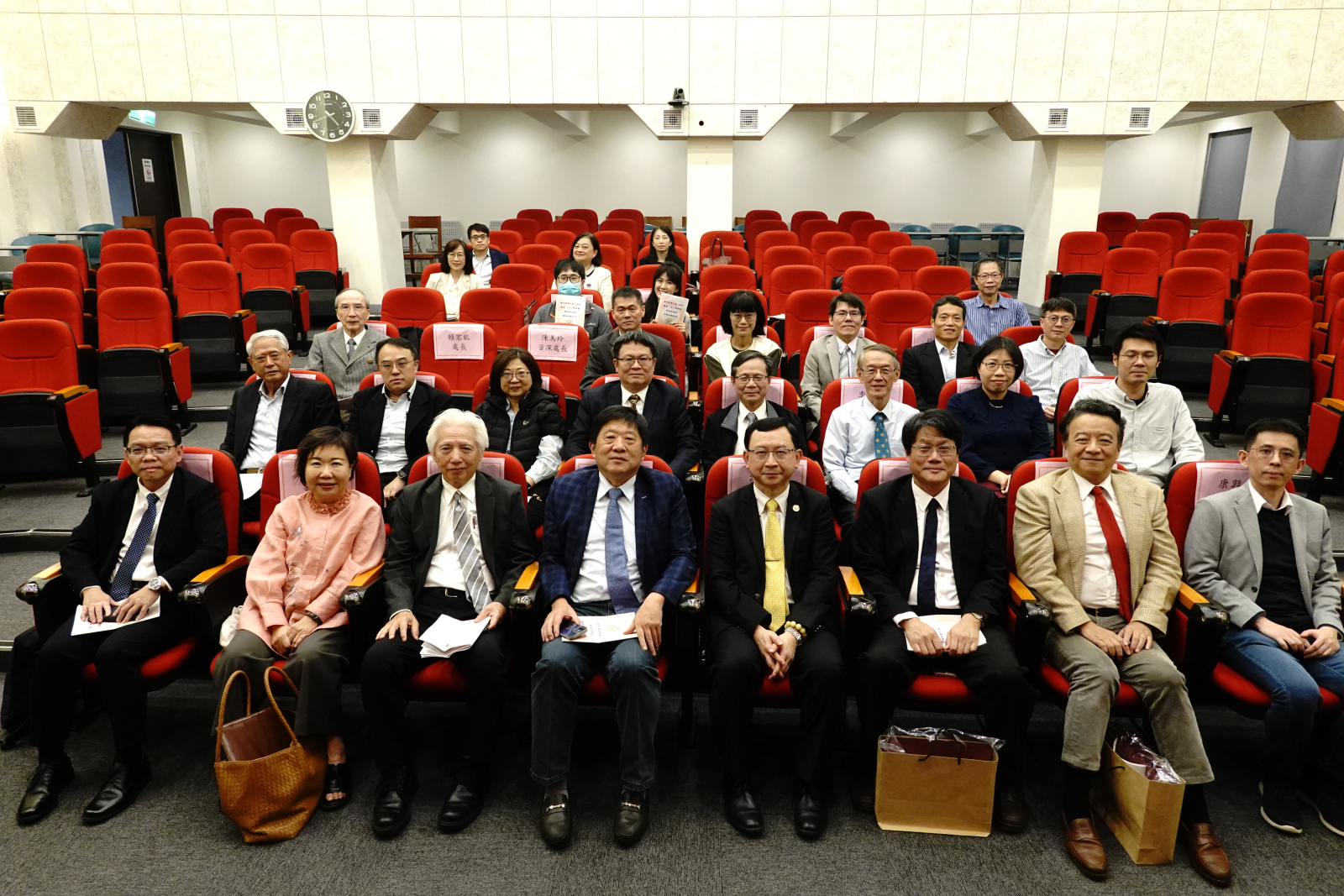
To improve the research quality in engineering fields, the College of Engineering (CoE) has co-established the TSUNG Cho-Chang Chair, the Qinglang·Chanda Chemical Chair, the Pin-Yen Chair, and the YOKE Outstanding Scholar Award, respectively with TSUNG Cho-Chang Education Foundation, Chanda Chemical Corporation, AVATACK CO., LTD., and YOKE INDUSTRIAL CORP. The CoE also established the Academic Award to encourage full-time faculty members to advance the academic achievements. The ceremony for the aforementioned awards was held on Nov. 22nd, 2024, in Lecture Hall 203 of the College of Engineering Building at NTU.
This year’s list of awarded professors includes Prof. Meng-Shiun TSAI (蔡孟勳) of Mechanical Engineering (TSUNG Cho-Chang Chair), Prof. C. Robert KAO (高振宏) of Materials Science and Engineering (TSUNG Cho-Chang Chair), Prof. Dun-Yen KANG (康敦彥) of Chemical Engineering (Qinglang·Chanda Chemical Chair), and Prof. Han-Pang HUANG (黃漢邦) of Mechanical Engineering (Pin-Yen Chair). Each award recipient is rewarded with NT$600,000 and a trophy. Prof. Jyh-Jone LEE (李志中) of Mechanical Engineering is awarded the YOKE Outstanding Scholar Award; in addition to a trophy, Prof. LEE is also awarded a prize of NT$300,000 per year for two years’ term of office. The Academic Award is presented to seven professors, including Prof. Jiunn-Shyang CHIOU (邱俊翔) of Civil Engineering (GMM Outstanding Scholar), Prof. Fu-Ling YANG (楊馥菱) of Mechanical Engineering (GPM Outstanding Scholar), Prof. Ling CHAO (趙玲) of Chemical Engineering (C SUN Outstanding Scholar), Prof. Wen-Yueh YU (游文岳) of Chemical Engineering (Symtek Outstanding Scholar), Prof. Feng-Yu TSAI (蔡豐羽) of Materials Science and Engineering, Prof. Hwong-wen MA (馬鴻文) of Environmental Engineering (Symtek Outstanding Scholar), and Prof. Wei-Chang LI (李尉彰) of Applied Mechanics (C SUN Outstanding Scholar). Each recipient is rewarded with a trophy and a prize ranging from NT$150,000 to NT$300,000.
During the ceremony, many distinguished guests were invited to present the rewards to the recipients, including Chair Hsu-Shun TSUNG (宗緒順) of the TSUNG Cho-Chang Education Foundation, Chair Ho-Ching HUANG (黃河清) of Chanda Chemical Corporation, Chair Hwei-Ling YANG (楊慧玲) of AVATACK CO., LTD., General Manager Tom LIN (林衢江) of YOKE Industrial Corp., C SUN Chair Morrison LIANG (梁茂生), GPM Senior Director Rita CHEN (陳美玲), GMM Director Hung-Neng LAI (賴宏能), and Professor Emeritus Dr. Wen-Hsiung WANG (王文雄) of Materials Science and Engineering. These guests acknowledged and commended the award-winning faculty members for their outstanding achievements in academic research and collaboration between industry and academia.
TSUNG Cho-Chang Chair—Prof. Meng-Shiun TSAI
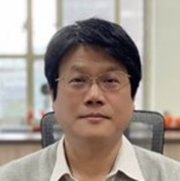 Dr. Tsai, Meng-Shiun is a distinguished professor at National Taiwan University (NTU) in the Department of Mechanical Engineering. He is also the director of the Intelligent Machinery Research Center at NTU. He earned his bachelor’s degree in Mechanical Engineering from NTU in 1988 and completed his Ph.D. in Mechanical Engineering at Penn State University in 1998. Dr. Tsai joined National Chung Cheng University in 1998 and transferred to NTU in 2018 as a full professor. He served as the convener of the Automation Division for the Ministry of Science and Technology from 2019 to 2021 and the principal investigator for the Ministry of Education's Smart Manufacturing Industry Innovation Talent Development Program from 2019 to 2021. He was the principal reviewer for the Smart Manufacturing Industry Advancement Project from 2020 to 2024 and the principal convener of the review panel for the Ministry of Economic Affairs' CITD program from 2020 to 2021. He is currently a board member of the ASME Taiwan Chapter and the Taiwan Society of Manufacturing, an executive board member of the Taiwan Automation Association, and a Fellow of the Chinese Automation Association. Dr. Tsai currently serves as the convener of the Engineering Strategy Group in the Expert Advisory Office at the National Science and Technology Council.
Dr. Tsai, Meng-Shiun is a distinguished professor at National Taiwan University (NTU) in the Department of Mechanical Engineering. He is also the director of the Intelligent Machinery Research Center at NTU. He earned his bachelor’s degree in Mechanical Engineering from NTU in 1988 and completed his Ph.D. in Mechanical Engineering at Penn State University in 1998. Dr. Tsai joined National Chung Cheng University in 1998 and transferred to NTU in 2018 as a full professor. He served as the convener of the Automation Division for the Ministry of Science and Technology from 2019 to 2021 and the principal investigator for the Ministry of Education's Smart Manufacturing Industry Innovation Talent Development Program from 2019 to 2021. He was the principal reviewer for the Smart Manufacturing Industry Advancement Project from 2020 to 2024 and the principal convener of the review panel for the Ministry of Economic Affairs' CITD program from 2020 to 2021. He is currently a board member of the ASME Taiwan Chapter and the Taiwan Society of Manufacturing, an executive board member of the Taiwan Automation Association, and a Fellow of the Chinese Automation Association. Dr. Tsai currently serves as the convener of the Engineering Strategy Group in the Expert Advisory Office at the National Science and Technology Council.
Dr. Tsai Meng-Shiun is a well-known scholar in the field of smart manufacturing specializing in machine tools, CNC controller design, and robotic control. In recent years, Dr. Tsai has led two large-scale integrated projects that bring together more than ten professors. These projects focus on cyber-physical manufacturing systems and AI-embedded CNC controllers which have achieved remarkable advancements. Dr. Tsai has collaborated with numerous domestic companies, including Delta Electronics, Hiwin, Syntech, Tong Tai, Yeong Chin Gong Gin, Feeler, Aerospace Industrial Development Corporation, and others, in areas such as industry-academia research projects, technology transfer, and patent acquisition. His outstanding contributions were recognized with the Taiwan Machine Industry Academia Contribution Award in both 2013 and 2022.
Dr. Tsai has received numerous prestigious awards throughout his career. These include the Ministry of Science and Technology's Outstanding Research Award in 2016, the Distinguished Engineering Professor Awards from the Chinese Institute of Engineers and the Chinese Society of Mechanical Engineers in 2021. He is a Fellow of the Taiwan Automation Association. Additionally, Dr. Tsai has served as a keynote speaker at several international conferences and has guided students to win numerous Best Paper Awards, as well as the CNC National Controller Application Creativity Contest, the Hiwin Smart Robotics Competition, and the Precision Machine Tools and Automation Technology Implementation Contest, where they have earned many championships.
TSUNG Cho-Chang Chair—Prof. C. Robert KAO
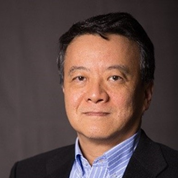 Professor C. Robert Kao's research focuses on the study of material interfacial reactions, electromigration, and the development of flexible electronic technology. His dedication to fundamental research has nurtured talent in Taiwan's materials science field. Through years of hard work and reputation-building, he was awarded the Functional Materials Division Distinguished Scientist Award by the American TMS Society in 2020 and received the award at the TMS Annual Meeting in San Diego. This award recognizes the outstanding achievements and contributions of scientists or engineers in the fields of electronic, magnetic, or photonic materials. It is the highest academic honor of the society's Functional Materials Division, awarded to one individual each year. Past recipients have included professors from top universities worldwide and academicians from advanced countries. Although the society intended to hold an honorary symposium in his name at the annual meeting, Professor Gao politely declined due to age considerations.
Professor C. Robert Kao's research focuses on the study of material interfacial reactions, electromigration, and the development of flexible electronic technology. His dedication to fundamental research has nurtured talent in Taiwan's materials science field. Through years of hard work and reputation-building, he was awarded the Functional Materials Division Distinguished Scientist Award by the American TMS Society in 2020 and received the award at the TMS Annual Meeting in San Diego. This award recognizes the outstanding achievements and contributions of scientists or engineers in the fields of electronic, magnetic, or photonic materials. It is the highest academic honor of the society's Functional Materials Division, awarded to one individual each year. Past recipients have included professors from top universities worldwide and academicians from advanced countries. Although the society intended to hold an honorary symposium in his name at the annual meeting, Professor Gao politely declined due to age considerations.
The TMS Society dates back to 1871 and is one of the largest, most traditional, and historical metallurgical societies in the world, as well as one of the earliest professional academic societies established in the United States. Additionally, Professor Kao received the TMS Society's Brimacombe Medalist Award in 2014, which recognizes scholars in the middle stages of their academic careers for outstanding performance, contributions, and achievements in materials science and engineering, preparing them for further top honors from the society. The award certificate highlights his outstanding and sustained contributions to advancing knowledge in electronic interconnection materials.
Professor Kao also developed the world's first microchannel electroless plating chip bonding technology, a groundbreaking innovation that combines microchannel and electroless plating techniques for vertical chip bonding at low temperatures and without pressure, addressing challenges faced in 3D IC chip bonding due to high temperatures and pressure. This technology is currently supported by Unimicron Technology Corporation and ASE Group for mass production research and development. This achievement was presented at the IEEE ECTC, the most important international conference in the field of electronic packaging, in 2019, and became one of the most downloaded papers on IEEE Xplore the following year.
Qinglang·Chanda Chemical Chair—Prof. Dun-Yen KANG
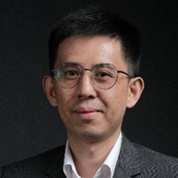 Born in Taipei, Taiwan, in 1981, Dun-Yen Kang began his academic journey at National Taiwan University, graduating with a B.S. in Chemical Engineering in 2004. His pursuit of knowledge led him to Georgia Tech in 2008, where he earned his Ph.D. in 2012 under the joint guidance of Professors Sankar Nair and Christopher W. Jones. Dun-Yen's postdoctoral tenure was spent with Prof. Seth Marder’s group in the School of Chemistry at Georgia Tech.
Born in Taipei, Taiwan, in 1981, Dun-Yen Kang began his academic journey at National Taiwan University, graduating with a B.S. in Chemical Engineering in 2004. His pursuit of knowledge led him to Georgia Tech in 2008, where he earned his Ph.D. in 2012 under the joint guidance of Professors Sankar Nair and Christopher W. Jones. Dun-Yen's postdoctoral tenure was spent with Prof. Seth Marder’s group in the School of Chemistry at Georgia Tech.
Returning to his alma mater in 2013, Dun-Yen joined the faculty of the Department of Chemical Engineering at National Taiwan University. His dedication to teaching and research led to his promotion from assistant professor in 2013 to associate professor in 2017, and ultimately to full professor in 2021. Dun-Yen currently holds a joint appointment with the International Graduate Program of Molecular Science and Technology at NTU (NTU-MST program) and has been serving as the vice chair of the Department of Chemical Engineering at NTU since August 2022.
Dun-Yen's work centers around the development of metal-organic framework (MOF) membranes for gas separation and pervaporation. His research includes understanding the molecular-level transport mechanisms of gas molecules in MOFs using in situ XRD and in situ spectroscopy. His significant contributions to his field have garnered him numerous accolades, including seven NTU excellent teaching awards and the NTU excellent mentor award. His accolades continued with the SCEJ Award for Outstanding Asian Researcher. Dun-Yen also contributes to the academic community as an editor, holding the position of associate editor for the Journal of the Taiwan Institute of Chemical Engineers and guest editor for Separation and Purification Technology in 2022. He previously served on the Early Career Editorial Board of Journal of Membrane Science in 2021 and is a current member of the Editorial Board of the same journal. His achievements were capped by receiving the Outstanding Research Award from NSTC in 2023.
Pin-Yen Chair—Prof. Han-Pang HUANG
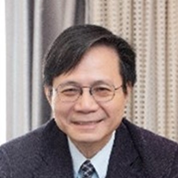 Prof. HAN-PANG HUANG received the Ph.D. degree in electrical engineering from the University of Michigan, Ann Arbor, MI, USA, in 1986. Since 1986, he has been with National Taiwan University, Taipei, Taiwan, where he is currently a professor with the Department of Mechanical Engineering and the Graduate Institute of Industrial Engineering and serves as the Director of the NTU Robotics Laboratory. He has been distinguished professor of the National Taiwan University since 2006, and held the position of Zhong Zhuo-Zhang Chair Professor since 2009. He served as the Director of the Manufacturing Automation Technology Research Center, Associate Dean at the College of Engineering, Director of the Graduate Institute of Industrial Engineering, and Chairperson of Mechanical Engineering with National Taiwan University. His current research interests include machine intelligence, humanoid robots, intelligent robotic systems, prosthetic hands, manufacturing automation, nanomanipulation, and nonlinear systems. He has authored more than 390 papers on these topics that have been published in refereed technical journals and conference proceedings.
Prof. HAN-PANG HUANG received the Ph.D. degree in electrical engineering from the University of Michigan, Ann Arbor, MI, USA, in 1986. Since 1986, he has been with National Taiwan University, Taipei, Taiwan, where he is currently a professor with the Department of Mechanical Engineering and the Graduate Institute of Industrial Engineering and serves as the Director of the NTU Robotics Laboratory. He has been distinguished professor of the National Taiwan University since 2006, and held the position of Zhong Zhuo-Zhang Chair Professor since 2009. He served as the Director of the Manufacturing Automation Technology Research Center, Associate Dean at the College of Engineering, Director of the Graduate Institute of Industrial Engineering, and Chairperson of Mechanical Engineering with National Taiwan University. His current research interests include machine intelligence, humanoid robots, intelligent robotic systems, prosthetic hands, manufacturing automation, nanomanipulation, and nonlinear systems. He has authored more than 390 papers on these topics that have been published in refereed technical journals and conference proceedings.
Prof. Huang was a recipient of the Ford University Research Award from 1996 to 1998, the Distinguished Research Award three times from 1996 to 2002, the Research Fellow Award twice from 2002 to 2008, the Distinguished Research Fellow Award from the National Science Council, Taiwan, in 2009, the Distinguished Education Award on Radio Frequency Identification from EPCglobal in 2010, the TECO Outstanding Science and Technology Research Achievement Award in 2012, the HIWIN Technologies Corp. Distinguished Industry Creation Award in 2014, the Automation Engineering Medal, Chinese Institute of Automation Engineers in 2018, the Gold Medal, Taiwan Automation Intelligence and Robotics Association, in 2019, the Robotics Engineering Medal, Robotics Society of Taiwan in 2021,. He is the Fellow of the Chinese Institute of Automation Engineers, the Chinese Society of Mechanical Engineers, and Robotics Society of Taiwan. He has been editor-in-chief of the Journal of Chinese Fuzzy System Association from 1997 to 1999 and the International Journal of Fuzzy System from 1999 to 2002; associate editor of IEEE TRANSACTIONS ON AUTOMATION SCIENCE AND ENGINEERING from 2003 to 2005, the International Journal of Advanced Robotics Systems, IEEE/ASME TRANSACTIONS ON MECHATRONICS; member of the Publication Management Committee of IEEE/ASME journals; and the editorial board member of the International Journal of Advanced Robotics from 2004 to 2008 and the International Journal of Service Robots; the Guest Editor of the Journal of Healthcare Engineering. He is currently on the editorial board of the International Journal of Electronic Business Management, Intl. J. Fuzzy Systems, an editor of the International Journal of Automation and Smart Technology, and editor of Intl. J. of iRobotics, MIT Supply Chain Board Member. He was named in Who’s Who in the World 2001 and 2002 and in Who’s Who in the R.O.C. in 2002. He has served as the general chair, program chair, committee chair/co-chair and member of several national, international, and IEEE conferences. He was the President of Chinese Institute of Automation Engineers, the Chairman of Taiwan Automation Intelligence and Robotics Association.
YOKE Outstanding Scholar Award—Prof. Jyh-Jone LEE
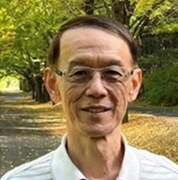 Professor Jyh-Jone Lee obtained his Ph.D. in Mechanical Engineering from the University of Maryland, USA, in 1991. From 1992 to 1998, he served as a researcher at the Mechanical Industry Research Laboratory of the Industrial Technology Research Institute in Hsinchu, where he was responsible for the development of machine tool and automation equipment technologies. Since 1998, he has been with the Department of Mechanical Engineering at National Taiwan University, where he currently holds a professorship.
Professor Jyh-Jone Lee obtained his Ph.D. in Mechanical Engineering from the University of Maryland, USA, in 1991. From 1992 to 1998, he served as a researcher at the Mechanical Industry Research Laboratory of the Industrial Technology Research Institute in Hsinchu, where he was responsible for the development of machine tool and automation equipment technologies. Since 1998, he has been with the Department of Mechanical Engineering at National Taiwan University, where he currently holds a professorship.
Professor Lee has served as a board member of the Mechanism and Machine Theory Society of the Republic of China and as a technical committee member for mechanical engineering national standards with the Bureau of Standards, Metrology, and Inspection, Ministry of Economic Affairs. He has also been invited multiple times to serve as a conference organizing committee member or executive secretary. His research covers a wide range of fields, including mechanism and machine design, mechatronic integration, computational kinematics, machine dynamics, and the application of robotics in factory automation. In recent years, his research has focused on the design and mechanics of compliant mechanisms, the application of machine learning in mechanism design, and the implementation of intelligent robotics in the automation industry.
In terms of academic mentorship, Professor Lee’s team has consistently achieved outstanding results in industry-academia competitions within the field of mechanical engineering. Their accolades include a Gold Award, an Excellence Award, and an Honorable Mention in the “Hiwin Machinery Master’s Thesis Award,” along with three other major competition wins. These include the Gold Award in the 2022 “Symtek Automation Asia Smart Manufacturing Technology Paper Competition,” Second Place in the 2022 “Chengde Technology in Education Foundation Innovative Competition in Electromechanical and Intelligence for Higher Education Institutes,” and First Place in the 2023 “GPM AI Creation Award competition”
Since 2017, Professor Lee has been actively engaged in industry-academia collaboration projects, aiming to combine his expertise with his team’s efforts to contribute to industrial technology development. Focusing on his specialty in mechanism design, he has prioritized the development of key modules for a self-retracted fall arrest device. Leading his lab team, he has helped companies overcome technical bottlenecks, creating new business opportunities in the process. Through such collaborations, Professor Lee and his team aspire to provide higher-quality technology, realize the societal value of academic research, drive industry innovation, and fulfill social responsibility.
Academic Award—Prof. Jiunn-Shyang CHIOU (C SUN Outstanding Scholar)
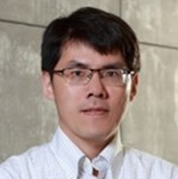 Professor Jiunn-Shyang Chiou received his Ph.D. from the Department of Civil Engineering at this university in 2001. After earning his doctorate, he worked as an engineer in the Geotechnical Division at Sinotech Engineering Consultants, Inc. and as an associate researcher and research fellow at the National Center for Research on Earthquake Engineering. Since joining the Department of Civil Engineering at this university as an assistant professor in 2016, he has steadily advanced through academic ranks, being promoted to associate professor in 2020 and full professor in 2024. Professor Chiou is currently a board member of the Chinese Taipei Geotechnical Society (CTGS) and serves as the chairperson of the Building Foundation Design Code Committee of CTGS, responsible for leading and developing national design specifications.
Professor Jiunn-Shyang Chiou received his Ph.D. from the Department of Civil Engineering at this university in 2001. After earning his doctorate, he worked as an engineer in the Geotechnical Division at Sinotech Engineering Consultants, Inc. and as an associate researcher and research fellow at the National Center for Research on Earthquake Engineering. Since joining the Department of Civil Engineering at this university as an assistant professor in 2016, he has steadily advanced through academic ranks, being promoted to associate professor in 2020 and full professor in 2024. Professor Chiou is currently a board member of the Chinese Taipei Geotechnical Society (CTGS) and serves as the chairperson of the Building Foundation Design Code Committee of CTGS, responsible for leading and developing national design specifications.
Professor Chiou’s research expertise and interests focus on foundation engineering, geotechnical earthquake engineering, seismic design of foundations, soil-structure interaction analysis, and performance-based geotechnical design and analysis. He is dedicated to advancing techniques for the performance-based design and analysis of structural foundations and geotechnical structures. His primary research areas cover performances of shallow foundations, pile foundations, and caisson Foundations.
Professor Chiou has received numerous awards and recognitions for his research and service, including the National Science and Technology Council (NSTC)'s Outstanding Young Scholar Research Project, NTU Academic Research Excellence Award, NTU College of Engineering Thesis Supervision Award, and the Journal of GeoEngineering Excellent Paper Award. He serves as the chairperson of the Building Foundation Design Code Committee of CTGS, an editorial board member of the Journal of GeoEngineering, and a reviewer for over 30 journals in the fields of geotechnical, structural, and earthquake engineering.
Professor Chiou's students have demonstrated exceptional performance in their research, achieving notable accomplishments such as publishing high-quality papers in international journals, and receiving the Journal of GeoEngineering Excellent Paper Award, the NTU College of Engineering Dean’s Award, and the NTU College of Engineering Undergraduate Thesis Award. Moving forward, Professor Chiou will continue to focus on advancing performance-based geotechnical design methods, actively applying his research to practical engineering design and contributing to the revision of national engineering specifications. At the same time, he remains dedicated to cultivating outstanding civil engineering talents with a strong theoretical foundation and practical expertise.
Academic Award—Prof. Fu-Ling YANG (GPM Outstanding Scholar)
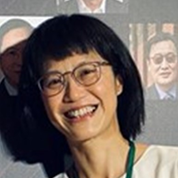 Professor Fu-Ling Yang received her Ph.D. and M.S. from California Institute of Technology in 2006 and 2002 after she graduated from Mechanical Engineering, National Taiwan University in 2000. She leads the Solid-Liquid Two-Phase Flow Laboratory to investigate complex flows' transport phenomenon, granular flows' rheology, and their governing equations and boundary conditions for flow prediction and control. Her team obtains detailed information at both the particle and the flow levels through innovative experiment design, novel measurement techniques, and feasible numerical simulations. They integrate the findings via theoretical analysis to reveal the hidden links, thereby breaking through the shortcomings of the existing theoretical framework and research methods. While her research framework is developed from theoretical analysis, her team is also committed to reduced-complexity analysis to develop ready-to-use flow solutions. The discovered transport mechanisms and research tools are also exploited to solve industrial problems.
Professor Fu-Ling Yang received her Ph.D. and M.S. from California Institute of Technology in 2006 and 2002 after she graduated from Mechanical Engineering, National Taiwan University in 2000. She leads the Solid-Liquid Two-Phase Flow Laboratory to investigate complex flows' transport phenomenon, granular flows' rheology, and their governing equations and boundary conditions for flow prediction and control. Her team obtains detailed information at both the particle and the flow levels through innovative experiment design, novel measurement techniques, and feasible numerical simulations. They integrate the findings via theoretical analysis to reveal the hidden links, thereby breaking through the shortcomings of the existing theoretical framework and research methods. While her research framework is developed from theoretical analysis, her team is also committed to reduced-complexity analysis to develop ready-to-use flow solutions. The discovered transport mechanisms and research tools are also exploited to solve industrial problems.
Her novel work on photoelastic granular flows and friction-transport mechanisms has won her two international research grants from the National Science and Technology Council (Orchid Project, Taiwan-France Joint Research Project). Her continuous and high enthusiasm for fundamental mechanics drives her to challenge new topics and all her publications are independent yet logically correlated. She has won the Young Scholar Awards of the Taiwan Society of Fluid Dynamics and of the Society of Theoretical and Applied Mechanics of the Republic of China. She also won the Young Engineering Professor Award of the Chinese Society of Mechanical Engineering Society. She has also received four Outstanding Young Scholars research grants from National Science and Technology Council together with sequential multiple-year research grants. Prof. Yang interest in linking science to research also brings her team more than 14 industrial projects from TSMC, TECO, Moldex3D, China Motor Corporation, Academia Sinica, National Chung-Shan Institute of Science and Technology, and Industrial Technology Research Institute.
Her devotion in education has helped her students at all levels win several awards from several academic societies, local and international conferences, and College Student Research Projects and Innovation Research Awards from NSTC. She has won three Teaching Awards and Outstanding Tutor from the school. She is also devoted to a wide range of services at several committees at NTU, Taiwan Society of Fluid Dynamics, Association of Computational Mechanics Taiwan, and the Society of Theoretical and Applied Mechanics of the Republic of China to promote relevant administrative and academic activities.
Academic Award—Prof. Ling CHAO (C SUN Outstanding Scholar)
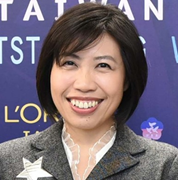 Professor Ling Chao received her Bachelor's degree from the Department of Chemical Engineering at National Taiwan University (NTU) and earned her Ph.D. in Chemical Engineering from the Massachusetts Institute of Technology (MIT) in 2009. From 2009 to 2011, she worked as a postdoctoral researcher at Cornell University. She joined NTU in 2011 and is currently a professor in the Department of Chemical Engineering. Her research interests include developing cell membrane biosensors and studying phenomena related to membrane proteins for therapeutic applications. She has received several awards, including the NTU Outstanding Mentor Award for the 2022-2023 academic year, the Lee Chang-hung Academic Research Outstanding Young Professor Award in 2022, the Ministry of Science and Technology’s Columbus Program in 2020, the Taiwan Outstanding Women Scientist Award in 2018, the NTU Teaching Award in the same year, the Young Scholar Innovation Award from the Foundation for the Advancement of Outstanding Scholars in 2017, the Lectureship Award from the Chemical Society of Japan in 2017, and the Young Scholar Award and Best Paper Award from the Taiwan Institute of Chemical Engineers in 2015.
Professor Ling Chao received her Bachelor's degree from the Department of Chemical Engineering at National Taiwan University (NTU) and earned her Ph.D. in Chemical Engineering from the Massachusetts Institute of Technology (MIT) in 2009. From 2009 to 2011, she worked as a postdoctoral researcher at Cornell University. She joined NTU in 2011 and is currently a professor in the Department of Chemical Engineering. Her research interests include developing cell membrane biosensors and studying phenomena related to membrane proteins for therapeutic applications. She has received several awards, including the NTU Outstanding Mentor Award for the 2022-2023 academic year, the Lee Chang-hung Academic Research Outstanding Young Professor Award in 2022, the Ministry of Science and Technology’s Columbus Program in 2020, the Taiwan Outstanding Women Scientist Award in 2018, the NTU Teaching Award in the same year, the Young Scholar Innovation Award from the Foundation for the Advancement of Outstanding Scholars in 2017, the Lectureship Award from the Chemical Society of Japan in 2017, and the Young Scholar Award and Best Paper Award from the Taiwan Institute of Chemical Engineers in 2015.
Professor Chao is dedicated to research and development of biotechnology for novel therapeutic applications. Membrane proteins are primary targets for current drugs and for developing innovative therapies, yet their structures and functions are significantly affected by the conditions during purification and detection, posing a major research challenge. Although some membrane proteins can be managed using current biochemical methods, their purification and labeling steps still require substantial investment of labor, time, and resources. She has developed new methods to construct various cell membrane chips that allow these proteins to be isolated, purified, and subsequently tested in their native membrane environment. This technique aids in the discovery and study of key membrane proteins whose functions and structures were previously unknown due to denaturation during processing. Recently, she has further integrated interdisciplinary techniques to develop a novel label-free drug screening tool, which significantly reduces the time for purification and labeling and identifies new drug candidates that previous methods could not detect. Professor Chao excels at applying fundamental principles of physics, chemistry, and mathematics in chemical engineering to develop new techniques, addressing challenges unsolved by current biotechnology. Her published papers demonstrate her keen observations, rigorous reasoning, and validation methods, showing great potential for groundbreaking contributions in drug development and understanding membrane protein function and mechanisms.
In addition, Professor Chao is highly committed to teaching. Since joining NTU, she has taught graduate-level Advanced Fluid Mechanics, undergraduate Unit Operations and Transport Phenomena, and Chemical Kinetics. Her teaching is thorough and effective, earning high praise from students. She has also designed and introduced new elective courses, emphasizing the use of examples to teach students how to apply foundational subjects to novel research. Furthermore, Professor Chao works closely with her graduate students, offering frequent guidance and utilizing research resources to develop their analytical skills and creativity for pioneering research. More than two-thirds of her students have won awards at conferences, reflecting her dedication to cultivating young research talent.
Academic Award—Prof. Wen-Yueh YU (Symtek Outstanding Scholar)
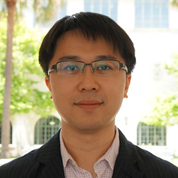 Professor Wen-Yueh Yu receives his Bachelor’s (2002) and Master’s degrees (2004) in Chemical Engineering from National Taiwan University. After that, Professor Yu served as a research assistant for the National Defense Service at the Institute of Chemistry, Academia Sinica (2005-2009). He then obtained his Ph.D. degree in Chemical Engineering from the University of Texas at Austin in 2015, followed by postdoctoral research at ETH Zurich, Switzerland (2015-2017). In 2017, Professor Yu returned to his alma mater as an assistant professor, and was promoted to associate professor in 2021. As of July 2024, he has published a total of 54 SCI articles, with approximately 2,500 citations (H-index of 25). Since assuming his teaching position, he has authored 30 SCI articles, including 19 as the corresponding author, and 1 as the co-first author. Six of these articles were published in journals with an impact factor greater than 10, including two articles in Applied Catalysis B, three in Chemical Engineering Journal, and one in Nano Energy.
Professor Wen-Yueh Yu receives his Bachelor’s (2002) and Master’s degrees (2004) in Chemical Engineering from National Taiwan University. After that, Professor Yu served as a research assistant for the National Defense Service at the Institute of Chemistry, Academia Sinica (2005-2009). He then obtained his Ph.D. degree in Chemical Engineering from the University of Texas at Austin in 2015, followed by postdoctoral research at ETH Zurich, Switzerland (2015-2017). In 2017, Professor Yu returned to his alma mater as an assistant professor, and was promoted to associate professor in 2021. As of July 2024, he has published a total of 54 SCI articles, with approximately 2,500 citations (H-index of 25). Since assuming his teaching position, he has authored 30 SCI articles, including 19 as the corresponding author, and 1 as the co-first author. Six of these articles were published in journals with an impact factor greater than 10, including two articles in Applied Catalysis B, three in Chemical Engineering Journal, and one in Nano Energy.
Professor Yu's research encompasses catalyst chemistry, surface science, sustainable processes, and in-situ spectroscopic characterizations. His recent research topics include: (1) the synthesis of nanostructured cerium oxide catalysts, and their application in non-reductive carbon dioxide conversion reactions; (2) the synthesis of graphitic carbon nitride and metallo-supramolecular polymer catalysts for catalytic transfer hydrogenation of biomass; (3) utilizing the confinement effects of metal-organic framework catalysts to regulate active species in transesterification and methanol decomposition; and (4) developing catalysts for the removal of low-temperature nitrogen oxides and ammonia synthesis. His research has garnered several prestigious awards, including the Best Poster Award at the Asia-Pacific Congress on Catalysis (2019), the Chemical Engineering Excellence Award from the Taiwan Institute of Chemical Engineers (2020), the Outstanding Paper Award from the Catalysis Society of Taiwan (2021), and the Young Scholar Award at the Taipei International Conference on Catalysis (2022). He has served on the Early Career Researcher Editorial Board of the SCI journal Materials Today Sustainability (Elsevier) (2021) and as an Associate Editor for the Journal of Environmental Chemical Engineering (Elsevier) (2024).
Professor Yu is committed to sharing his knowledge and research experience in chemical engineering. He has advised students to receive the College Student Research Creativity Award from the National Science and Technology Council (2020) and the Presidential Award for Graduate Students at National Taiwan University (2023). He has also been recognized with Excellence Teaching Awards from National Taiwan University (2021 and 2023). His research has attracted significant international attentions, leading to formal collaborations with researchers from Japan, the United Kingdom, Slovenia, Latvia, Australia, Austria, and other countries. In addition to his academic pursuits, Professor Yu actively promotes research applications in industry, maintaining long-term partnerships with organizations such as China Steel Corporation, CPC Corporation, Taiwan, Foxconn Interconnect Technology Limited, and the Industrial Technology Research Institute.
Academic Award—Prof. Feng-Yu TSAI
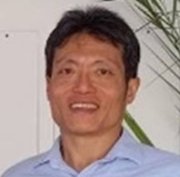 Prof. Feng-Yu Tsai received his Ph.D. degree in materials science from University of Rochester in Rochester, New York, U.S.A., after which he worked as a process development engineer with Headway Technologies (San Jose, CA, U.S.A) and as a senior process development engineer with DoPont Displays (Santa Barbara, CA, U.S.A). He joined Dept. Materials Science and Engineering at NTU as a faculty member in 2002. He is currently the chairperson of the department. His main research interests lie in the atomic-scale thin film formation mechanisms, their resultant material properties, and their manifestations in a wide variety of coating and surface-functionalization applications spanning from displays, photovoltaics, semiconductor devices, thermoelectrics, biomedical materials, organic electronics, and hydrogen energy materials.
Prof. Feng-Yu Tsai received his Ph.D. degree in materials science from University of Rochester in Rochester, New York, U.S.A., after which he worked as a process development engineer with Headway Technologies (San Jose, CA, U.S.A) and as a senior process development engineer with DoPont Displays (Santa Barbara, CA, U.S.A). He joined Dept. Materials Science and Engineering at NTU as a faculty member in 2002. He is currently the chairperson of the department. His main research interests lie in the atomic-scale thin film formation mechanisms, their resultant material properties, and their manifestations in a wide variety of coating and surface-functionalization applications spanning from displays, photovoltaics, semiconductor devices, thermoelectrics, biomedical materials, organic electronics, and hydrogen energy materials.
Academic Award—Prof. Hwong-wen MA (Symtek Outstanding Scholar)
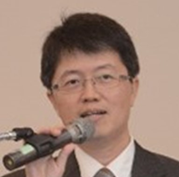 Professor Hwong-wen Ma is a professor at the Graduate Institute of Environmental Engineering, National Taiwan University. He graduated from the University of North Carolina at Chapel Hill with a Ph.D. in Environmental Science and Engineering. He worked as an environmental scientist at the Research Triangle Institute in the US, and since 1998, he has served as an assistant professor, associate professor, and professor at NTU. In 2012, he became the Director of the Center for Pollution Control and Prevention Technologies in the College of Engineering, and from 2013 to 2016, he served as the Director of the Graduate Institute of Environmental Engineering.
Professor Hwong-wen Ma is a professor at the Graduate Institute of Environmental Engineering, National Taiwan University. He graduated from the University of North Carolina at Chapel Hill with a Ph.D. in Environmental Science and Engineering. He worked as an environmental scientist at the Research Triangle Institute in the US, and since 1998, he has served as an assistant professor, associate professor, and professor at NTU. In 2012, he became the Director of the Center for Pollution Control and Prevention Technologies in the College of Engineering, and from 2013 to 2016, he served as the Director of the Graduate Institute of Environmental Engineering.
Professor Ma's research interests lie in environmental planning and management. He has served as Chairman of the Environmental Planning and Management Committee and Secretary-General of the Chinese Institute of Environmental Engineering. He also founded the Circular Economy and Innovation Transformation Association, promoting circular economy and sustainable transformation across industries such as steel, semiconductors, textiles, construction, and information technology. Internationally, he serves as associate editor of SCI journals and has been a visiting scholar at institutions including University of Cambridge, Vienna University of Technology, Troyes University of Technology in France, and Argonne National Laboratory in the United States, where he has facilitated collaborative research and supervised Ph.D. students. In 2015, he organized the ISWA Beacon 3rd International Conference on Final Sinks, advancing research in sustainable material management. Currently, he leads the Taiwan team in a five-nation consortium executing a Belmont Forum project to develop a circular economy model at the national, industrial, and corporate levels.
Professor Ma's research areas include environmental systems analysis, industrial ecology, and environmental risk and impact assessment, applied to address critical issues such as environmental management, circular economy, and sustainable cities. He has developed integrated environmental assessment methodologies to quantify the impacts of economic activities and policies on the environment and health, identifying efficient management strategies and highlighting sustainable resource management as a key transformation pathway towards sustainability. Professor Ma has received the NTU Outstanding Teaching Award and several Excellence in Teaching Awards, dedicating himself to cultivating students with both engineering expertise and a vision for sustainable management, empowering them to become a driving force for sustainable development in an ever-changing world.
Academic Award—Prof. Wei-Chang LI (C SUN Outstanding Scholar)
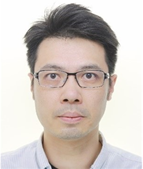 Wei-Chang Li graduated from the Department of Electrical Engineering and the Institute of Electronic Engineering of National Taiwan University and received his PhD from the Department of Electrical Engineering and Computer Science at the University of California, Berkeley, in 2015. He then worked at mCube Inc. as a MEMS design engineer and returned to NTU in 2016. Currently, he serves as the deputy director of the Nanoengineering and Science Program in the Graduate School of Advanced Technology of NTU. Prof. Li has won the 2024 Young Scholar Award from the Nanotechnology and Microsystem Association, the 2023 NSTC Ta-You Wu Memorial Award, the 2010 and 2023 NSTC Outstanding Young Scholars Programs, and the 2021 Teaching Outstanding Award in NTU.
Wei-Chang Li graduated from the Department of Electrical Engineering and the Institute of Electronic Engineering of National Taiwan University and received his PhD from the Department of Electrical Engineering and Computer Science at the University of California, Berkeley, in 2015. He then worked at mCube Inc. as a MEMS design engineer and returned to NTU in 2016. Currently, he serves as the deputy director of the Nanoengineering and Science Program in the Graduate School of Advanced Technology of NTU. Prof. Li has won the 2024 Young Scholar Award from the Nanotechnology and Microsystem Association, the 2023 NSTC Ta-You Wu Memorial Award, the 2010 and 2023 NSTC Outstanding Young Scholars Programs, and the 2021 Teaching Outstanding Award in NTU.
The research work of Prof. Li’s group is mainly to develop innovative MEMS sensing components to realize power-efficient intelligent sensing system. The core direction includes the development of micro-mechanical resonance components and integrated systems through innovative micro-mechanical structure design and extension of mechanical principles to solve the limitations of transistor solutions in current key areas and apply them to ultra-low-power communications and high-sensitivity sensing, and gradually expand to fields such as communication security and mechanical computing. The research outcomes of Prof. Li’s group continue to receive international recognition. From 2018 to 2025, Prof. Li’s group has published articles every year at the IEEE MEMS Conference and has repeatedly won the recognition of the Excellent Chip Design Award from the Taiwan Semiconductor Research Institute (TSRI).